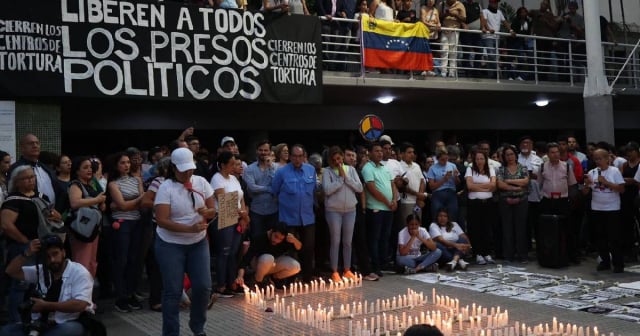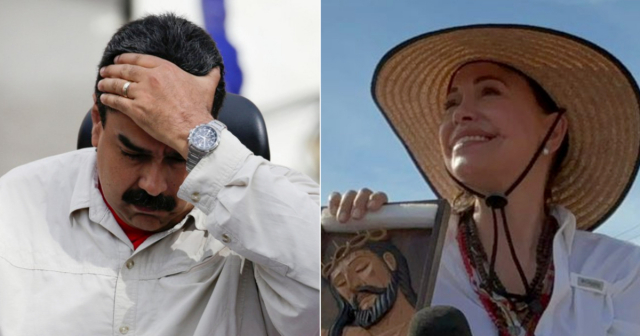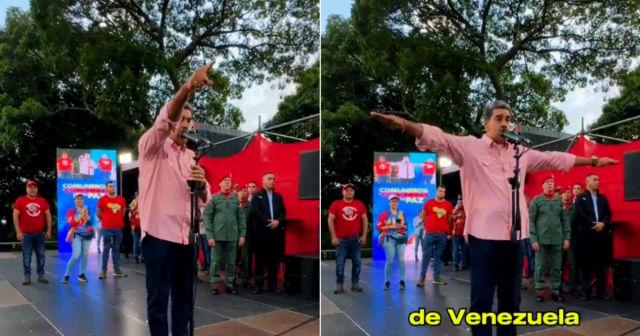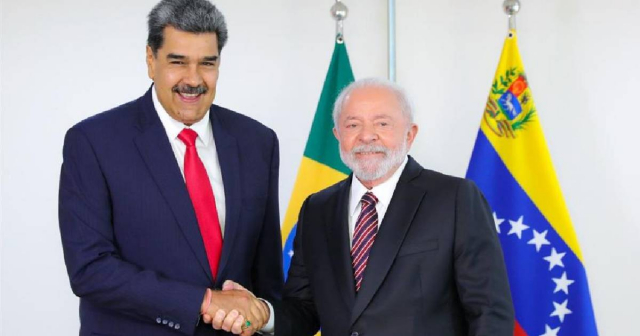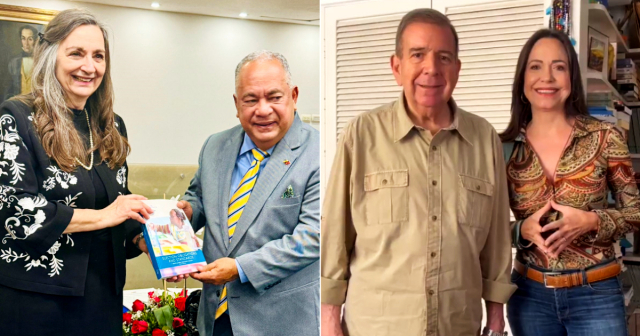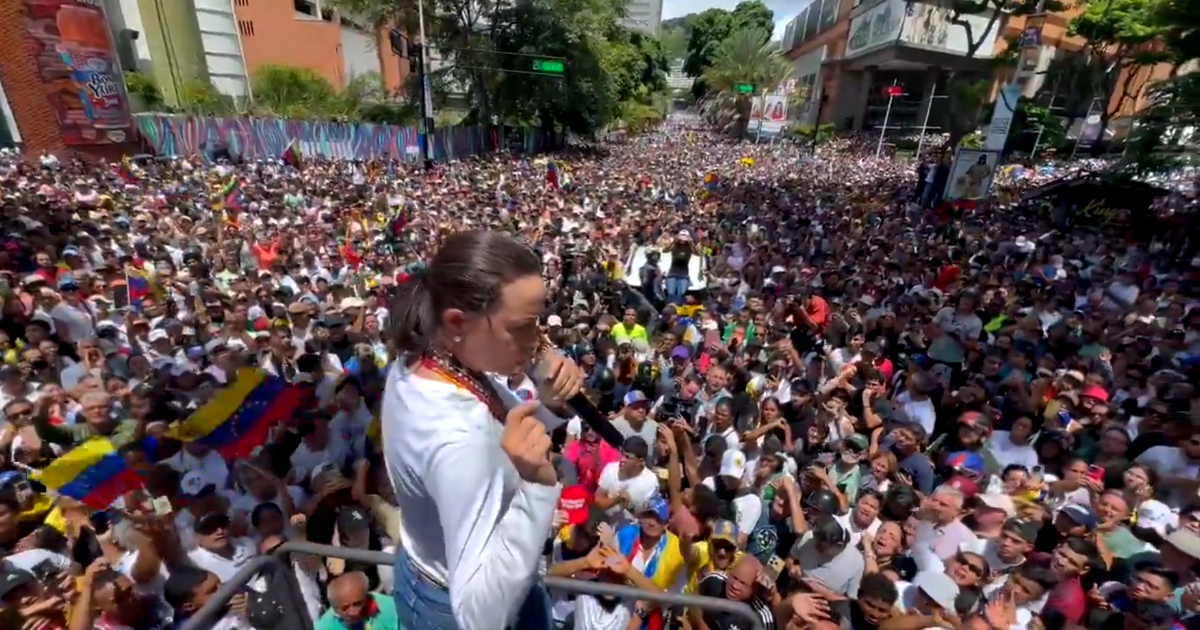
The recent preliminary report issued by a panel of experts from the United Nations (UN) questioned the legitimacy of the electoral process in Venezuela and the outcome that declared Nicolás Maduro as the winner.
The document, which was initially intended to be confidential, has caused a political earthquake by denouncing unprecedented irregularities in the context of an election that, according to the panel, lacks the basic standards of transparency and credibility.
The UN panel's report states that "the announcement of an election result without the publication of its details or the disclosure of tabulated results to the candidates is unprecedented in contemporary democratic elections."
This forceful statement represents a monumental diplomatic setback for chavismo before the international community and, according to El Mundo, highlights the lack of transparency in the management of results by Venezuela's National Electoral Council (CNE).
The election, which ended with the proclamation of Maduro as elected president, has been embroiled in scandal because, according to electoral records known so far, the opposition candidate Edmundo González Urrutia is said to have received four million more votes than Maduro.
This data was verified and certified by the Carter Center, which, like the UN, was present in the electoral process as one of the few independent international observers.
A devastating report
The UN electoral observation mission was invited to Venezuela by the CNE itself, as part of the Barbados Agreements, a pact between the government and the opposition supported by the international community.
However, the UN pointed out that, despite its presence, the process was marked by a series of irregularities and a lack of transparency that undermine the legitimacy of the outcome.
The report highlights that "the CNE did not publish, and has still not published, any results, or results broken down by polling place, to support its verbal announcements, as outlined in the electoral legal framework."
In addition, UN experts criticized the cancellation of three key post-electoral audits, which could have clarified whether there was any kind of external interference or hacking in the data transmission system.
Response from the Nicolás Maduro regime
In response to these accusations, the Maduro regime strongly responded, accusing the UN panel of spreading lies and violating the terms of reference agreed upon with the CNE.
In an official statement, the Venezuelan government expressed that the preliminary conclusions of the report are "an act of propaganda that serves the coup-mongering interests of the Venezuelan far-right." According to EFE, regime authorities claimed that the panel had direct contacts with officials from the U.S. State Department, which would cast doubt on the impartiality of the report.
The statement also assures that the panel of experts had access to all phases of the electoral process and argues that Maduro's election as president is legitimate and reflects the sovereign will of the Venezuelan people.
The impact on the international community
The preliminary report from the UN has triggered a chain reaction within the international community, where future relations with Maduro's government are already being questioned.
The publication of the document marks a before and after in the international perception of the Venezuelan regime, which now faces greater pressure to justify the legitimacy of its mandate.
For its part, the Venezuelan opposition found support for its fraud allegations and insisted to the international community on its request not to recognize the election results.
Meanwhile, the situation in Venezuela remains tense, with a polarized country and an increasingly critical international community towards Maduro's government.
Final conclusions of the report
The final conclusions of the UN expert panel have yet to be published, and it is expected that these will provide an even more detailed assessment of the irregularities that occurred during the electoral process.
However, what is already evident is that this preliminary report has significantly undermined the credibility of the Venezuelan electoral process and has put Maduro's government in a difficult position before the international community.
The political future of Venezuela is more uncertain than ever, and the pressure both internally and externally on the Venezuelan government continues to rise. The coming weeks will be crucial in determining whether the country can find a way out of this electoral crisis or if it will plunge even deeper into a political conflict that threatens to extend indefinitely.
The United Nations demands an end to repression and thorough investigations following the elections.
After the controversial presidential elections on July 28 in Venezuela, the country has been immersed in a wave of repression by the Chavista regime, which has generated international concern.
The independent international fact-finding mission on Venezuela, established by the UN Human Rights Council, requested the Venezuelan government to immediately stop this repression and to thoroughly investigate the human rights violations occurring.
Since the election celebrations, at least 23 deaths have been recorded, most of them due to gunfire, in the context of the protests that have shaken the country. The Mission stated that these deaths must be investigated and that, if the abusive use of force by security forces is confirmed, those responsible must be held accountable.
Furthermore, the Mission documented the detention of at least 1260 people, including 160 women, although the Attorney General of Venezuela raises the figure to 2200 detainees, many of whom have been indiscriminately classified as "terrorists."
Among those arrested are political leaders, journalists, and human rights defenders, as well as an alarming number of over 100 minors who have been charged with the same serious offenses as adults.
Detentions have been marked by violations of due process, including summary telematic hearings and the imposition of serious charges without sufficient evidence.
The Mission demanded the immediate release of all arbitrarily detained individuals and emphasized the need to respect international standards regarding due process and detention conditions, especially in the case of minors.
The Mission will continue investigating and documenting human rights violations in Venezuela while urging the government to cease repression and ensure justice for the victims.
What do you think?
COMMENTFiled under:

